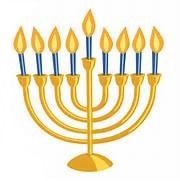
The events that led to the miraculous victory of Hanukkah span a
period of about one hundred seventy years. Beginning from about 313
bce, Greeks, under Alexander the Great, conquered the Persian
Empire.* Alexander's empire eventually extended from Macedonia and Greece on
the west, Egypt on the south, and the 
Within Alexander's empire, the province of Judea * in the Land of Israel continued to be a crossroad point for many international affairs. Judea was the only surviving Jewish province, and the entire world's Jewish population lived within Alexander's empire as it had in the Persian Empire.
You would have thought that the Jewish people and the ancient
Greeks would get along. After all, they had so much in common.
Both valued wisdom and beauty. Greek philosophers acknowledged a
single, great Mind behind the entire cosmos, similar to Jewish
belief in the one
They did manage somewhat – at first. Jews tolerated Greek rule for several generations. Many Jews studied the Greek philosophers Plato and Aristotle. King Ptolemy (of the Egyptian region) had the Hebrew Torah translated into the Greek language. But, when King Antiochus (of the Syrian region) tried to replace Jewish law and custom with Greek culture, Jews rebelled.
Antiochus forbade Jewish ritual circumcision. Mothers openly circumcised their infant boys in defiance, though. Antiochus forbade observing the Jewish Sabbath – Shabbat. Antiochus forbade study of the Torah. When Greeks raised up idols and demanded that Jews worship them, a guerrilla war ensued.
The Jewish people fought for their integrity and the rights of
their spirit, not for their country or for their lives. But the
The Jewish resistance, on the other hand, began with a handful of brothers from the priestly class, calling themselves the Maccabees.
There were many acts of courage, but the Maccabees' handful of warriors could never have beaten back such a mighty army. In addition to the miraculous victory, they received a clear sign that their victory had been a miracle from Above. When they took back Jerusalem and the Temple, they searched and found a single flask of undefiled olive oil – just what they needed to light the Holy Temple's Menorah.
Although the flask only held enough oil for a single day, this oil miraculously burned for eight full days, providing just enough time to prepare fresh oil. For the Jewish People, this was a nod from Above that, yes, the One
— adapted from "What Is Chanukah?" by Rabbi Tzvi Freeman, as published by Lubavitch of Wisconsin (Celebration, "Chanukah Guide," 5777/2016).
as published by Lubavitch of Wisconsin (Celebration, "Chanukah Guide," 5777/2016).